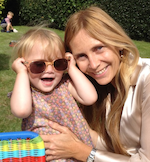As both a POTS patient and a researcher, my goal in writing this blog post is to help all POTS patients find reliable information on their illness and become a refined connoisseur of scientific literature. By doing this, you can generate intelligent hypotheses and engage in meaningful discussions with doctors and scientists – because we need your help. You don’t need a doctorate degree to contribute to science.
When I first started researching POTS in a laboratory setting, I thought I knew a lot about the disorder since I had done my own online research for years. I had no idea how much of what I “knew” about POTS was based on speculation or even incorrect information.
For instance, I thought that POTS involved an overstimulation of the sympathetic nervous system that led to symptoms, because I read about it on so many blogs, websites, and Wikipedia. Talking with my mentors and digging deep into the existing scientific literature, I found out that it’s not that simple. In fact, I learned that most POTS patients actually have a blunted increase in sympathetic nerve activity upon standing.
Published scientific papers are much more reliable than other sources of information because they are peer-reviewed. This means that before a paper is accepted and published by a journal, it is sent to at least two experts in the field who either approve, suggest revisions be made, or reject the paper. The peer-review process helps ensure that the research is meaningful and that the paper is a valid representation of the study.
There are three main types of research papers:
1. Case Reports and Case Series
Case reports and series are detailed reports of an individual or a small series of patients. Case reports and series are often used to describe a rare disease, or an unusual presentation of a common disease. The report includes patient demographic information, as well as symptoms, diagnosis, and treatment of the disease. However, case reports and series only contain anecdotal information about one patient or a small number of patients; they are not science and most are not peer-reviewed. Case reports are given the least weight and credibility by medical professionals and researchers.
2. Original Research Articles
Original research articles contain a detailed report from the researchers about the study they conducted. Original research articles are usually divided into five parts: (1) the abstract which summarizes the study; (2) the introduction, which gives you some background and states the objective and hypothesis for the study; (3) the methods that explain how the study was conducted; (4) the results; and (5) the discussion or conclusion which puts the results in the context of the field of research and explains the study’s significance and implications. Original research articles are a primary source and there is no better way to gather information than directly from the researchers themselves.
There are many different types of original research articles, and the study design is the major factor in determining how much weight to give a study. Observational studies, such as questionnaires, study research subjects at one or more time points, but no intervention is given. An interventional study looks at the effect of a certain treatment (a drug, exercise, diet, etc.) on a group of subjects and either compares the subjects to themselves before the intervention or to a control group. When reading interventional studies look for keywords in the methods like “control,” “placebo-control”, “blind” and “double-blind,” “crossover,” and “randomized.” A control group is a group of subjects that did not receive treatment, which is compared to a treatment group. A placebo-control means that one group received a placebo treatment instead of the active treatment. A placebo is a “fake” treatment, like a sugar pill or an injection that doesn’t contain any drug. In blinded studies the subjects don’t know what treatment they receive and in double-blinded studies neither the subjects nor the researchers are aware of the treatment (usually a nurse or lab technician knows the treatments for safety reasons). In a crossover study, each subject receives more than one treatment during the study duration and randomized means that the order that the treatments are given varies across subjects. All of these design features strengthen the study and make the results more compelling.
3. Review Articles
Review articles are papers that summarize a certain topic by discussing results from numerous original research articles. There are pros and cons to review articles. They are great for getting a broad overview of a topic. Journals invite experts on certain topics to write review articles and they are also peer-reviewed so the information is very reliable. The downside is that review articles do not go into the methods of every study they cite and the authors can sometimes misinterpret the primary literature in the review article. Therefore, if you read a review article I would suggest that you look at the references and find the original review articles that correspond to the sections that interested you and skim those as well.
Reading peer-reviewed research and review articles is a good start, but keep in mind that not all journals carry the same weight. A journal’s impact factor is a good indicator of how important the information it publishes is. A study that will change the face of medicine can get into a high impact journal like The Journal of the American Medical Association or JAMA (impact factor = 30) or for groundbreaking cardiovascular research, Circulation (impact factor = 15). Other studies with less powerful data may be published in lower impact journals like Clinical Autonomic Research (impact factor = 1.5). This doesn’t mean that a journal with a low impact factor contains false information, articles in these journals are peer-reviewed as well, yet the data may not be as compelling or noteworthy. Low impact journals often focus on more specific topics for a targeted audience, which can be a good thing. For example, Circulation is read by most cardiologists, but it does not publish many papers on POTS. On the other hand, Clinical Autonomic Research publishes on POTS often and is read by most who study disorders of the autonomic nervous system.
However, just because something is published in a good peer-reviewed journal doesn’t mean it’s a proven fact. For example, we have all heard that “500,000 Americans have POTS.” This factoid has been published in dozens of credible journal articles which all cited to one paper for this estimate. Yet the “original” paper had no discussion to how this estimate was made. This “fact” was an educated guess made by experts in the field, which I found out by contacting the author directly. This experience taught me to be a critical reader and get to the source of a fact to see how accurate and precise it is.
If I’ve learned anything from being involved in medical research for the past three years, it’s to not believe everything I read. I encourage you all to become informed patients. Search for papers from credible peer-review journals and become a critical reader of scientific literature. Below are some tips to get you started.
How to find a credible journal article
1. Search for primary literature on databases like PubMed.gov and Google Scholar. Don’t believe everything you read on Facebook groups, blogs, Wikipedia or commercial websites. You can also find links to many primary sources on POTS and other autonomic disorders on the Dysautonomia International website.
2. Review articles on Medscape, Up to Date, and in most journals are good for a broad overview of a topic, but check the articles they cite before accepting anything as fact.
3. When you find a paper, look at the journal’s name and impact factor. The higher the impact factor, the more highly regarded the journal. This is usually available on the journal’s website.
4. Look at the author affiliations – are they from a well-known school/hospital with a reputable autonomic lab?
5. Look at the senior author (last author on the list). He or she is the one that oversaw the study. Do you recognize his or her name as an autonomic expert?
6. Look at the author(s) prior publications. If you click on the authors name on PubMed.gov, there is usually a link to other studies they have published. Have they published other studies on POTS or other autonomic disorders? If you can’t find this on PubMed.gov, the researcher may have a list of publications on his or her biography page, which can often be found on the website of the university he or she is affiliated with.
How to critically read an original research paper
1. Start with the abstract – this is the summary. See if this article is interesting to you and worth reading.
2. Read the introduction. Look for the purpose of this study. Read about what was known and unknown prior to this study to give yourself some context. Sometimes the background for a study can lead you to another fascinating paper to read later.
3. Glance at the methods. See what was actually done in the study. You don’t have to understand all the details of the methods, but make sure the methods make sense for the topic. Some methods are more reliable and valuable than others and you will learn this over time.
4. Look at the results and figures. Check what is statistically significant (if P < 0.05, it’s significant). If it’s not statistically significant, it’s not a solid finding.
5. Ask yourself, do the conclusions make sense based on the results? The conclusions can sometimes be much broader than what the results actually warrant.
6. If this study involves human subjects and you are trying to decide if these findings apply to your circumstance, check the inclusion criteria in the methods section. Also look at subjects’ demographic data (ie. age, gender, race, etc.) in the results to see if the study subjects are similar to you.
7. Do not be afraid to get to the source. If you have questions about the research paper, send a respectful and concise email the corresponding author. Usually their email is listed on the first page of the paper.
 Guest contributor Amanda Ross graduated from Johns Hopkins University with a B.A. in Behavioral Biology. Working with noted POTS researchers, Dr. Julian Stewart and Dr. Peter Rowe, Amanda has published two peer-reviewed research papers on POTS. She also gave a presentation on one of her studies to fellow researchers at the 24th International Symposium on the Autonomic Nervous System. She is currently pursuing a Ph.D. in Neuroscience at Pennsylvania State University College of Medicine and looks forward to conducting additional research on POTS and the autonomic nervous system. Amanda is a founding member of the Dysautonomia International Patient Advisory Board.
Guest contributor Amanda Ross graduated from Johns Hopkins University with a B.A. in Behavioral Biology. Working with noted POTS researchers, Dr. Julian Stewart and Dr. Peter Rowe, Amanda has published two peer-reviewed research papers on POTS. She also gave a presentation on one of her studies to fellow researchers at the 24th International Symposium on the Autonomic Nervous System. She is currently pursuing a Ph.D. in Neuroscience at Pennsylvania State University College of Medicine and looks forward to conducting additional research on POTS and the autonomic nervous system. Amanda is a founding member of the Dysautonomia International Patient Advisory Board.
